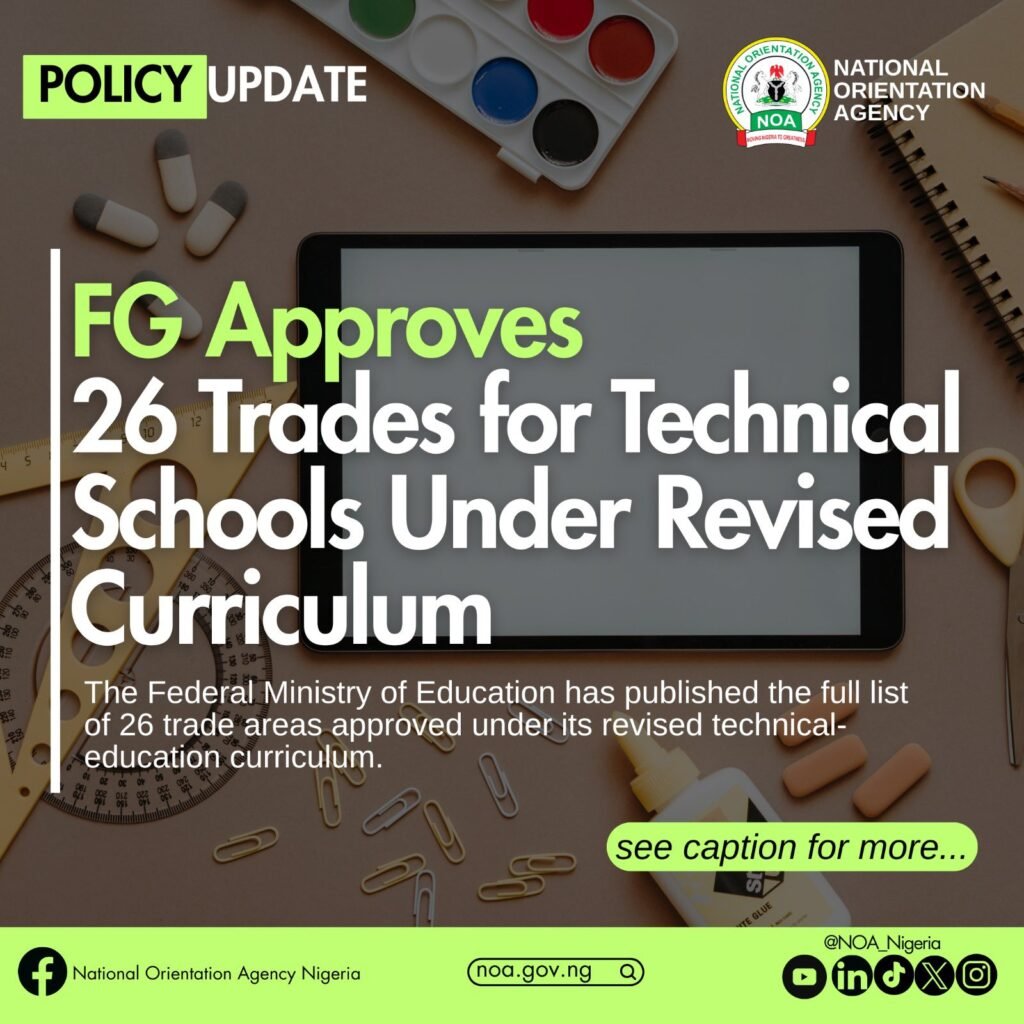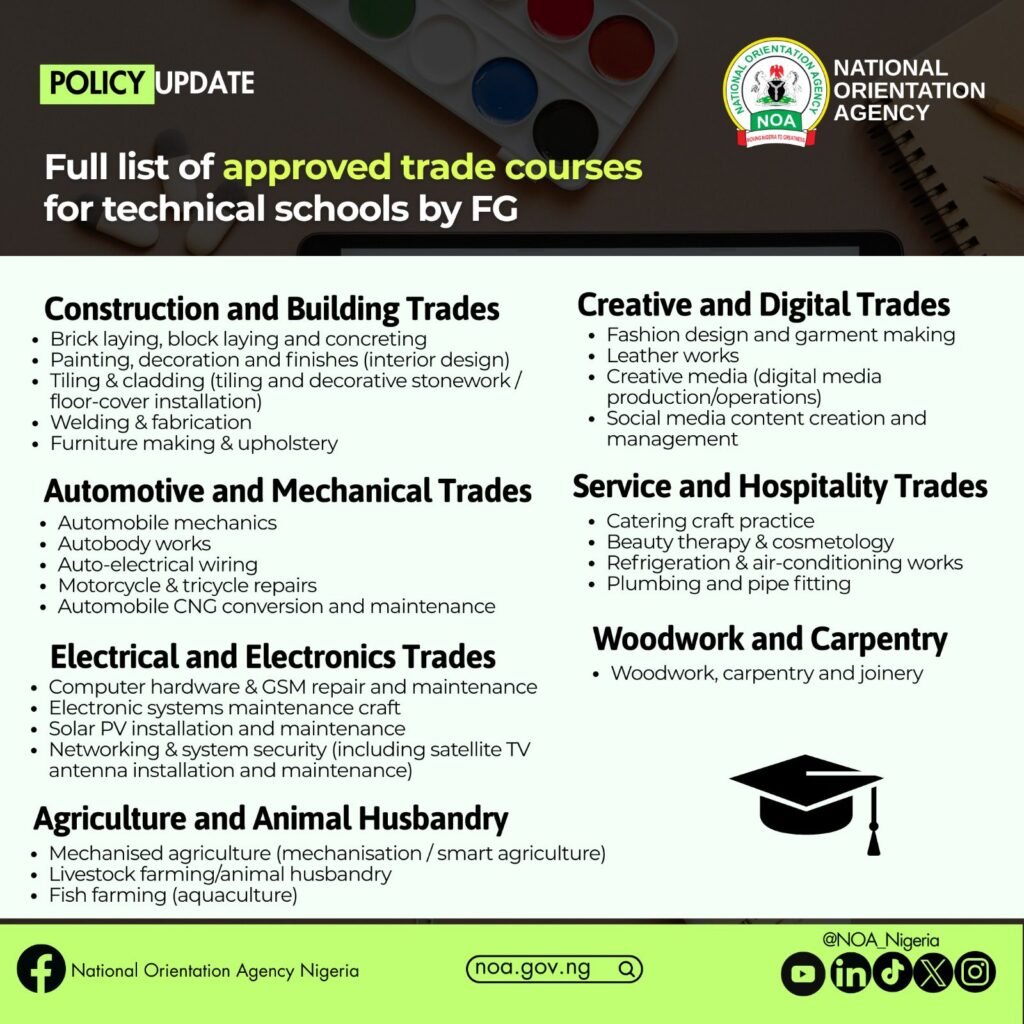The Federal Government has announced tuition-free education in all Federal Technical Colleges (FTC) nationwide.
The policy also covers approved charges such as boarding fees, uniforms, textbooks, exercise books, identity cards, stationery, clubs, societies, medicals, and insurance.
In a statement, the Ministry of Education said this decision will ensure every Nigerian child has access to quality technical education. “No Nigerian child should be denied access to technical education because of illegal charges,” the Minister of Education, Dr. Tunji Alausa, said.
The government explained that the initiative is part of President Bola Ahmed Tinubu’s Renewed Hope Agenda, which prioritises Technical and Vocational Education and Training (TVET).
Dr. Alausa stressed that the policy is designed to equip Nigerian youth with employable skills for national transformation. “By investing in education today, we are building a stronger, self-reliant Nigeria,” he affirmed.
Parents were urged to report illegal demands directly to the Ministry through hotlines and email. Circulars reinforcing the policy have already been sent to all FTCs.
What Parents Should Know
The Ministry clarified that while tuition and core expenses are fully covered, students must provide their personal items.
These include Sunday or Jumat wears, slippers, blankets, bedsheets, towels, underwear, one ream of A4 paper for registration, and other cleaning materials.
The Ministry assured that monitoring mechanisms are in place to tackle infractions swiftly.
26 Trades Revised Curriculum Approved
Furthermore, in a move to boost technical education and equip students with relevant vocational skills, the government also approved 26 trade subjects for implementation in the colleges across the country under a newly revised curriculum.
The reform, which aims to ease curriculum overload and strengthen trade-specific competencies, responds directly to 21st-century challenges, ensuring that graduates are equipped with skills that are immediately relevant and applicable to today’s fast-evolving labour market.
The new curriculum will, over time, address the shortage of technical skills in critical sectors such as construction, energy, agriculture, automotive, creative media and digital services as students will be trained in brick laying, block laying and concreting, woodwork, carpentry and joinery and plumbing and pipe fitting.
Other subjects available include computer hardware & GSM repair and maintenance, refrigeration & air-conditioning works, mechanisation and smart agriculture, autobody works, catering craft practice, among others.
As announced by the Education Minister, Dr Maruf Alausa, under the new curriculum, students are expected to offer between nine and ten subjects: one core trade subject, five to six general subjects, two to three trade-related subjects, and one elective.
The reform also introduces Citizenship and Heritage Studies alongside the core science and language subjects.
Rate, Like 👍, Comment💬, share this article and Follow us on our social media handles. You can also Submit your own story to get featured and earn rewards!









